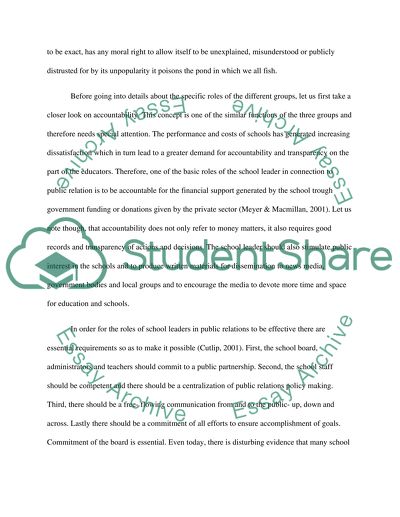Cite this document
(Roles of School Leaders in Public Relations Article Example | Topics and Well Written Essays - 1500 words, n.d.)
Roles of School Leaders in Public Relations Article Example | Topics and Well Written Essays - 1500 words. https://studentshare.org/social-science/1547878-school-administrator-public-relations-comparative-critique-of-10-articles
Roles of School Leaders in Public Relations Article Example | Topics and Well Written Essays - 1500 words. https://studentshare.org/social-science/1547878-school-administrator-public-relations-comparative-critique-of-10-articles
(Roles of School Leaders in Public Relations Article Example | Topics and Well Written Essays - 1500 Words)
Roles of School Leaders in Public Relations Article Example | Topics and Well Written Essays - 1500 Words. https://studentshare.org/social-science/1547878-school-administrator-public-relations-comparative-critique-of-10-articles.
Roles of School Leaders in Public Relations Article Example | Topics and Well Written Essays - 1500 Words. https://studentshare.org/social-science/1547878-school-administrator-public-relations-comparative-critique-of-10-articles.
“Roles of School Leaders in Public Relations Article Example | Topics and Well Written Essays - 1500 Words”. https://studentshare.org/social-science/1547878-school-administrator-public-relations-comparative-critique-of-10-articles.


